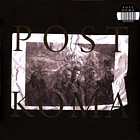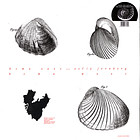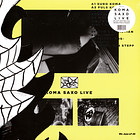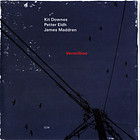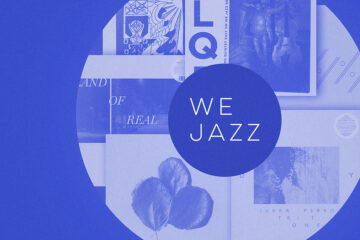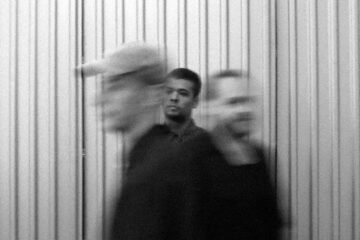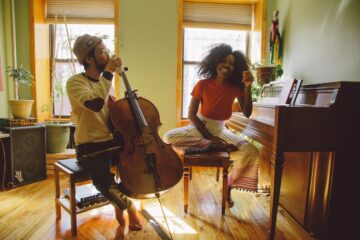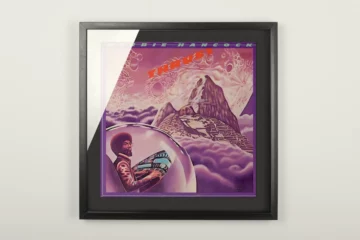Petter Eldh stands out. Not because of the cap and cargo pants he always wears. But because of his double bass. As soon as the Swede gets his bow out, people take notice of him. This happens quite a lot. Eldh takes to the stage a hundred times a year in Porto, Rotterdam, São Paulo or Berlin, where he sometimes lives, if he isn’t already somewhere else, either with his band Koma Saxo, the trio Enemy or with friends like Otis Sandsjö.
The 41-year-old recently won the German Jazz Award. The jury’s statement reads as follows: Eldh is a »driving force behind the development of a Berlin-Nordic jazz axis«. He can laugh about it because he knows it’s true. Eldh, who grew up with free jazz parents near Gothenburg, has »left his mark« in recent years, especially in the so-called scene and because of his double bass. But also because he hoards samplers and synthesisers to do »crazy things«, as he says.
This craziness has always attracted him. At least ever since his parents dragged him to see Brötzmann at a critical age. After that, it was clear that rebelling against it would be difficult. So Eldh hitched up his trousers to somewhere below his buttocks, listened to hip-hop, made beats—and moved to Copenhagen. »There I studied classical double bass, absorbed the American school and played jazz. Until I felt stuck and moved on. Berlin was like a new beginning for me.«
Distancing from the white man
Eldh was often in Berlin in the 2000s. To dig for vinyl in the original HHV backyard. Or just to party. That was 20 years ago, hard to believe. A broad grin. At any rate, that’s when his love for Berlin and its possibilities began. After all, it was here that Eldh found his way back to hip-hop, sampling and his electronic roots—albeit via detours from which he now distances himself.
»At first I was wandering around the city and discovering all these little clubs,« says Eldh. »There was music everywhere. I just stood there and played.« But the milieu that Eldh calls his »past« soon no longer suited him. Too many white men, too little awareness of their own privilege, made him choose the fire exit.
»I don’t think the city did anything to me.«
Petter Eldh
»It was an active choice I had to make,« says Eldh. »But it made me look around again, and to meet more open-minded people.« They come to Berlin from all over, rarely from Berlin itself. »That’s why I don’t think the city has changed me. It was the people who changed me. I found them here, but I could have met them in London or Amsterdam. It was just because I was looking for them.«
Dilla? Crazy shit
In the meantime, Eldh has played on almost 200 albums, for Lucy Railton, Jameszoo or albums on ECM. He plays in groups with some of the biggest names in contemporary jazz: Christian Lillinger, Noah Fürbringer, Lucia Cadotsch. Eldh also works hard on his production skills with his Swedish buddy Otis Sandsjö. Y-Otis play the relevant festivals—the output is called »liquid jazz« for safety’s sake, so that there is a clear distinction between sampling madness and seriousness: The old structures are coagulating.
»At the time, I didn’t know a single jazz drummer in Berlin who played like Dilla,« says Eldh. »So we just did it ourselves and put some crazy shit on top. People hated it. But only those who were no longer going my way.« Everyone else, the young people, would have understood immediately. »They know exactly what Berlin used to be. They just don’t build on it anymore.«
Related reviews
The fact that Eldh now spends much of his free time on the west coast of Sweden should not be interpreted as an escape from Berlin: The city is still fun after all these years. But it’s also… Petter Eldh searches for the right words, thinks about it, says… »exhausting«. In any case, Berlin is not a constant. If you come here, you can’t just stand there and wait for things to happen. »You have to go looking,« says Eldh. That’s the only way to get noticed.


